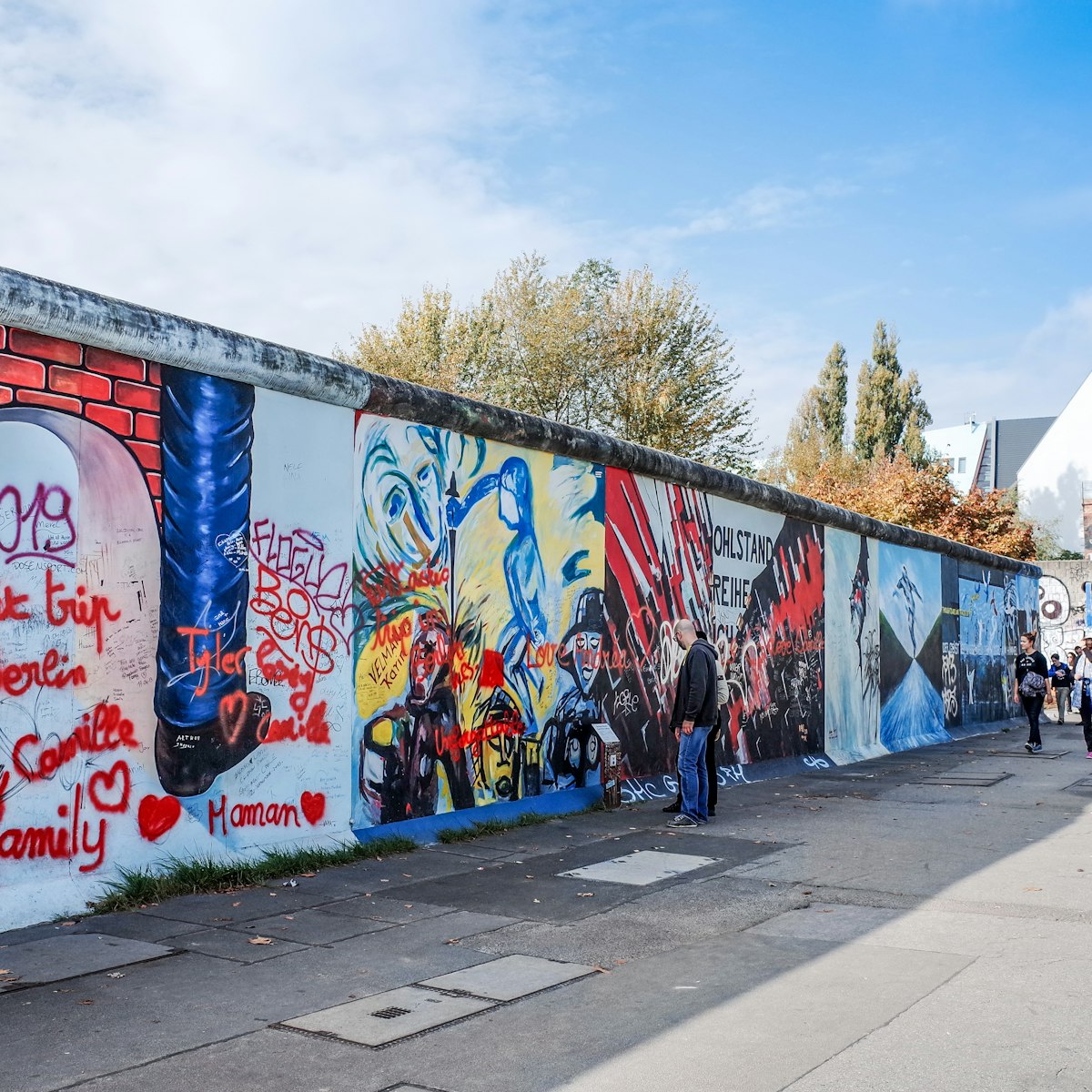About 35km north of Berlin, Sachsenhausen was built by prisoners and opened in 1936 as a prototype for other camps. By 1945, some 200,000 people had passed through its sinister gates, most of them political opponents, Jews, Roma people and, after 1939, POWs. Tens of thousands died here from hunger, exhaustion, illness, exposure, medical experiments and executions. A tour of the memorial site with its remaining buildings and exhibits will leave no one untouched.
Thousands more succumbed during the death march of April 1945, when the Nazis evacuated the camp in advance of the Red Army. Note the memorial plaque to these victims as you walk towards the camp from S-Bahn station Oranienburg (at the corner of Strasse der Einheit and Strasse der Nationen).
Unless you’re on a guided tour, pick up a leaflet (€0.50) or, better yet, an audioguide (€3, including leaflet) at the visitor centre to get a better grasp of this huge site. Between mid-October and mid-March, avoid visiting on a Monday when all indoor exhibits are closed.
The approach to the camp takes you past photographs taken during the death march and the camp's liberation in April 1945. Just beyond the perimeter, the Neues Museum (New Museum) has exhibits on Sachsenhausen's precursor, the nearby Oranienburg concentration camp, in a repurposed brewery, and on the history of the memorial site during the GDR-era (1950 to 1990).
Proceed to Tower A, the entrance gate, cynically labelled, as at Auschwitz, Arbeit Macht Frei (Work Sets You Free). It houses an exhibits on the organisation of the concentration camp and its architectural layout. Beyond here is the roll-call area, with barracks and other buildings fanning out beyond. Off to the right, two restored barracks illustrate the abysmal living conditions prisoners endured. Barrack 38 has an exhibit on Jewish inmates, while Barrack 39 graphically portrays daily life at the camp. The prison next door was an especially sinister place of torture and murder. Famous inmates included Hitler's would-be assassin Georg Elser and the anti-Nazi minister Martin Niemöller, author of the First They Came... poem.
Moving towards the centre, the Prisoners' Kitchen chronicles key moments in the camp's history. Exhibits include instruments of torture, the original gallows that stood in the roll-call area and, in the cellar, heart-wrenching artwork scratched into the wall by prisoners.
The most sickening displays, though, are about the extermination area called Station Z, which was separated from the rest of the grounds and consisted of an execution trench, a crematorium and a gas chamber. The most notorious mass executions took place in autumn 1941 when more than 10,000 Soviet POWs were executed here in the course of four weeks.
In the far right corner, a modern building and two original barracks house the Soviet Special Camp exhibit, which documents Sachsenhausen's stint as Speciallager No 7, a German POW camp run by the Soviets from 1945 until 1950. About 60,000 people were held here; some 12,000 of them died, mostly of malnutrition and disease. After 1950, Soviet and East German military used the grounds for another decade until the camp became a memorial site in 1961.
Exhibits in the original infirmary barracks on the other side of the roll-call area illustrate the camp's poor medical care and the horrific medical experiments performed on prisoners. One section focuses on the men and women incarcerated in Sachsenhausen after the failed assassination attempt on Hitler on 20 July 1944.
Note that no food is available at the memorial site, although a vending machine in the Neues Museum dispenses hot drinks. You're allowed to bring food and drink with you. There are cafes, bakeries and small markets outside Oranienburg train station.
The S1 makes the trip thrice hourly from central Berlin (eg Friedrichstrasse station) to Oranienburg (ABC ticket €3.40, 45 minutes). Hourly regional RE5 and RB12 trains leaving from Hauptbahnhof are faster (ABC ticket €3.40, 30 minutes). The camp is about 2km from the Oranienburg train station. Turn right onto Stralsunder Strasse, right on Bernauer Strasse, left on Strasse der Einheit and right on Strasse der Nationen. Alternatively, bus 804 makes hourly trips from the station straight to the site (use same ticket, 7 minutes).







